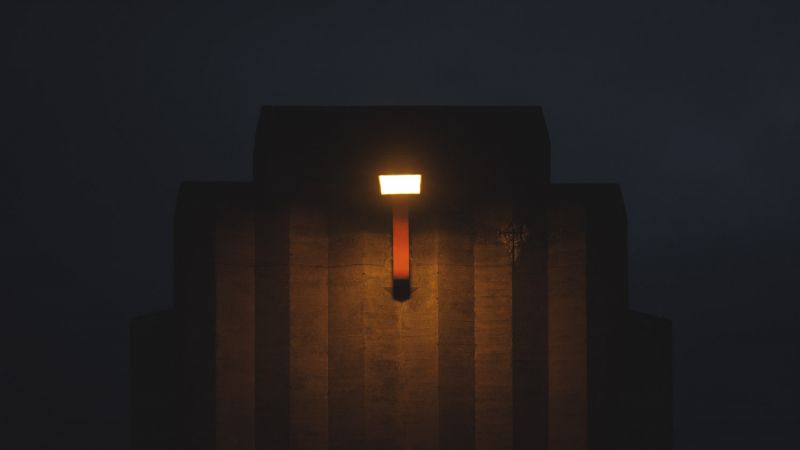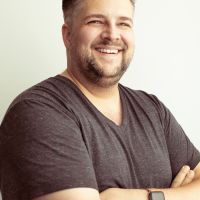
For the past two years, Michael Yuan has photographed the Golden Gate Bridge of San Francisco from numerous angles, showcasing its individual features – “the Bridge may be more beautiful when examining its individual features than viewing it as a sum of its parts.” Through this project, I hope to change how people see the Bridge and encourage people to see their surroundings differently, too.

Michael wanted to challenge the perceptions of the Golden Gate Bridge.
In solid red-orange and spanning 1.7 miles long, the Golden Gate Bridge is an icon of San Francisco. Though it is visibly massive, people often chase after the same handful of popular perspectives that garner significant social media engagement, which can become repetitive. They’re often taken at similar spots, edited in similar ways, and all showing the grandeur of the bridge. Due to the sheer quantity of photos of the Golden Gate Bridge every day, it almost feels like the bridge is photographed to death and there isn’t much left to see of it.
Over the past couple of years, he’s made uncountable trips to this architectural wonder to capture all its faces that have never been presented before. The bridge has many beautiful features that are neglected when it’s observed as a whole. It comprised of imposing towers, stylized street lamps, gigantic cables, and more – each with their own distinctive geometry and shape – the bridge may be more beautiful when examining its individual features than viewing it as a sum of its parts.

To Michael, much of the beauty of the Golden Gate Bridge comes from the fact that the design and visual details are very mathematically beautiful and perfect.
I’ve always loved mathematics and that really stood out to me. There are lines that reminded me of math plots, cascading shapes that reminded me of geometry problems, and proportions that follow the Golden Ratio. Additionally, because of the location and size, there’s minimal visual clutter, making it even more so seem like a perfect mathematical diagram or equation.
Thus, I sought to create a series of photos that represent the Golden Gate Bridge without showing the bridge in its entirety. It’s an intimate portrait of the Golden Gate Bridge studying its form, lines, shapes, and color. Through these photos, I hope to reconstruct our perspectives towards the Golden Gate Bridge.
[Related Reading: Aerial Photographer Creates A Unique Minimalist Photo Series Of Swimming Pools From Above]
How did you get into shooting projects such as this? Were you always interested in abstract like this or was it something that grew as you got more experience?
I would say it’s definitely something that grew as I got more experience. I started photography by taking travel photos, but the desire to become unique made me more interested in the arts as a whole. Ironically, before I pursued photography I disliked most of the 20th-century art movements (ie, abstract expressionism, dadaism, minimalism, etc). I would write them off as pretentious and unskillful. However, I felt like if I wanted to truly progress my photography and my own expression, I needed to understand the stuff that came before me. So I put aside my judgment and tried to understand and learn about the different movements and their impact. After I learned more, I’ve become more open-minded and understood the value and impact, even if I don’t personally find some movements interesting. It was during that period that I started working on this project. What’s interesting is that throughout the course of the project the visual cues I gravitate changes,

Nowadays, I’m not tied to any particular subject. Photography is a form of creative expression for me and I use it to explore different concepts and ideas or simply capture something that catches my eyes. If you look at my Instagram feed, it’s kind of all over the place in terms of subject and style.
How have you developed your style? Do you have any advice for beginners?
I think the biggest piece of advice is to learn about what’s been done before (especially the masters), consume with intent, then shoot with intent. Nowadays, with social media, our attention span is quite short. We glance at a photo for a couple of seconds and move on. Maybe it’s visually appealing to us, but we rarely think about the why, what, and how. After learning and understanding great works, it’s important to attempt it yourself so that the learnings commit to your memory, even though sometimes it may seem boring.
Lastly, always be open-minded, I was surprised how much my opinions change over the years.
What is your go-to/must-have gear in your bag?
I currently shoot on the Fujifilm XF series. My most used lens is the XF 16-55mm f/2.8 and I bring it everywhere. I generally like shooting at the extremities of focal lengths and that lens has decent coverage.

Another lens I really like to use is the Pentax M 100mm f/2.8 (produced between 1977-1984, adapted onto my camera). Originally, I got it as a relatively low-cost test (I got mine for $70 off eBay) to see if I like the focal length. But the optics turned out to be incredibly good even by today’s standards, so I still use it and have never found a reason to upgrade. Much of the project was shot on this lens, actually.
How do you continue to grow as a photographer?
Similar to many other people, I ultimately want to find my unique and recognizable voice in photography (or the arts). As I mentioned before, I’m currently not tied to any particular subject but I have a bunch of random projects I want to try to experiment with and see what I’m more passionate about. Something I can spend a decade shooting.
I’m also constantly on the lookout for interesting projects, photographers, and art to add to my inspirations.
Random Fact – What book are you currently reading?
I regularly browse photobooks for inspiration.
Do you need permits/releases for projects like this with “landmark” buildings and roadways?
Not that I know of. I remember reading that if you were shooting something commercial, you might need to obtain a permit. I know of people getting fined for taking photos of the bridge on private property, but for the publicly accessible areas, there should be no issue at all.
To see more of Michaels work be sure to visit his Website and Instagram Linked below
- Website: ilikecalculus.com
- Instagram: @ilikecalculus
*Content shared with permission























Get Connected!